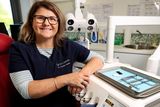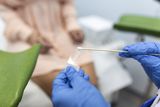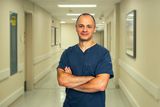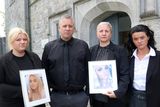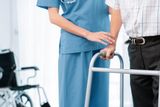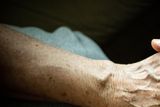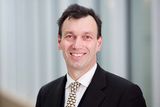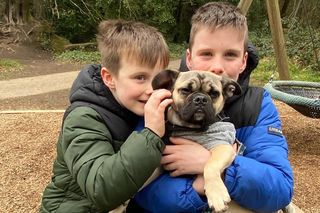Tales of medical misconduct: 'I didn't believe he was real doctor'
Complaints are on the rise with one case involving a doctor who mistook an ankle for an elbow
As the regulator for the more than 20,000 members of the medical profession practising in Ireland, the Medical Council fields all complaints from the public regarding a doctor's behaviour or performance. These complaints are first investigated in private by a preliminary proceedings committee. Only the most serious will proceed to a full fitness-to-practise inquiry.
Just like a court hearing, both sides will present their case at an inquiry, before the fitness-to-practise committee retires to make its formal decision. Typically, doctors will hire a solicitor or barrister to defend them. If found guilty, doctors can face a range of sanctions, such as being removed from the Medical Council register, a hefty fine, or having specific conditions attached to their registration.
The biggest portion of complaints refer to issues with clinical investigations or examinations, diagnosis, surgical procedures and/or follow-up care, although complaints regarding poor communications are on the increase.
Last year, a total of 369 complaints were received by the council, an increase of 20pc on the previous year. Sixty of these were referred to the fitness-to-practise committee. Five doctors were struck off the medical register in 2015, while others received various sanctions, such as warnings or a fine.
These proceedings are usually held in public, which has been a bone of contention amongst medics, although the council can decide to hold the hearing in private, or partly in private, if they feel this is more appropriate. This has seen a glut of staggering cases make the headlines in recent years.
Earlier this year, a fitness-to-practise inquiry found Sudanese national Dr Mohamed Abdelrahman guilty of misconduct and poor professional performance on three counts, following claims he had falsified his application.
Dr Abdelrahman worked in the obstetrics and gynaecology department at Letterkenny General Hospital, Co Donegal, for several months before admitting that he failed to inform the Medical Council that he had been refused registration by the British General Medical Council (GMC) on two occasions due to failing English-language competency tests.
In one of the more implausible cases, in January an inquiry heard that a doctor was accused of mistaking an X-ray of an ankle for that of an elbow in 2014.
It was also alleged that orthopaedic surgeon Dr Omar Hassan demonstrated "bizarre" behaviour including wearing inappropriate head gear and had not followed correct hygiene procedures during a spinal operation at University Hospital Galway (UHG).
In total, there were 30 alleged examples of professional misconduct and displaying a lack of professional knowledge bordering on the "disgraceful and dishonourable" against Dr Hassan. He had worked at several Irish hospitals between 2012 and 2014, including the Midland Regional Hospital Portlaoise and Mayo General Hospital, as well as UHG, and was eventually suspended from practice pending the inquiry.
During the 11-day hearing, orthopaedic surgeon Professor John McElwain commented that "to mistake an ankle for an elbow is a very, very serious matter indeed. You teach that to medical students... there is no similarity whatsoever".
Dr Hassan was found guilty of misconduct and poor professional performance on multiple grounds, and suspended from medical practice until sanctions are imposed.
Dr Sabah Al-Zayyat was found guilty of professional misconduct in 2014, when it was found that she failed to inform Tallaght Hospital there were restrictions on her practise of medicine when she applied for a post as a part-time locum consultant paediatrician at the hospital in November 2008.
Dr Al-Zayyat, who was originally from Pakistan, had been told just months earlier that she was required to notify the GMC if she applied for any job outside the UK and to notify any prospective employer of the conditions and restrictions on her practise.
These were imposed following her examination of the infant in the "Baby P" case in the UK in 2007. "P" was a child on the child-protection register who had unexplained injuries, and was found dead two days after an examination by Dr Al-Zayyat. Following the Irish inquiry, she was fined €5,000 and had further conditions attached to her practice by the Medical Council.
Dr Etop Akpan, a consultant obstetrician and gynaecologist at Our Lady of Lourdes Hospital in Drogheda, was found guilty on two counts of poor professional performance by the council in 2012 but cleared of professional misconduct. Nigerian-born Dr Akpan had defended 41 allegations relating to the case of Sharon McEneaney, who died in April 2009 following significant delays in her treatment for abdominal cancer.
In 2012, another inquiry was shocked to hear that a senior house officer at Midland Regional Hospital in Portlaoise had tried to read a spinal X-ray while holding it upside down.
Dr Vincent Osunkwo faced five allegations of professional misconduct or poor professional performance. It was also alleged that in March 2009 he had asked nursing staff if a patient's pulse rate reading of 165 beats a minute was high.
British consultant surgeon Anthony Peel told the hearing that he was "almost speechless" in relation to this allegation, saying most members of the public would know this was high, as would any medical student. The inquiry heard that Dr Osunkwo had tried to cannulate (insert a tube) a patient using a scalpel to cut the patient's hand - a nurse was force to "snatch" the scalpel from him.
"Dr Osunkwo had a scalpel in his hand. She (the patient) was crying he was about to cut into a vein, I said, 'Jesus what are you doing?" the nurse told the inquiry. "I didn't believe he was a real doctor."
Join the Irish Independent WhatsApp channel
Stay up to date with all the latest news
